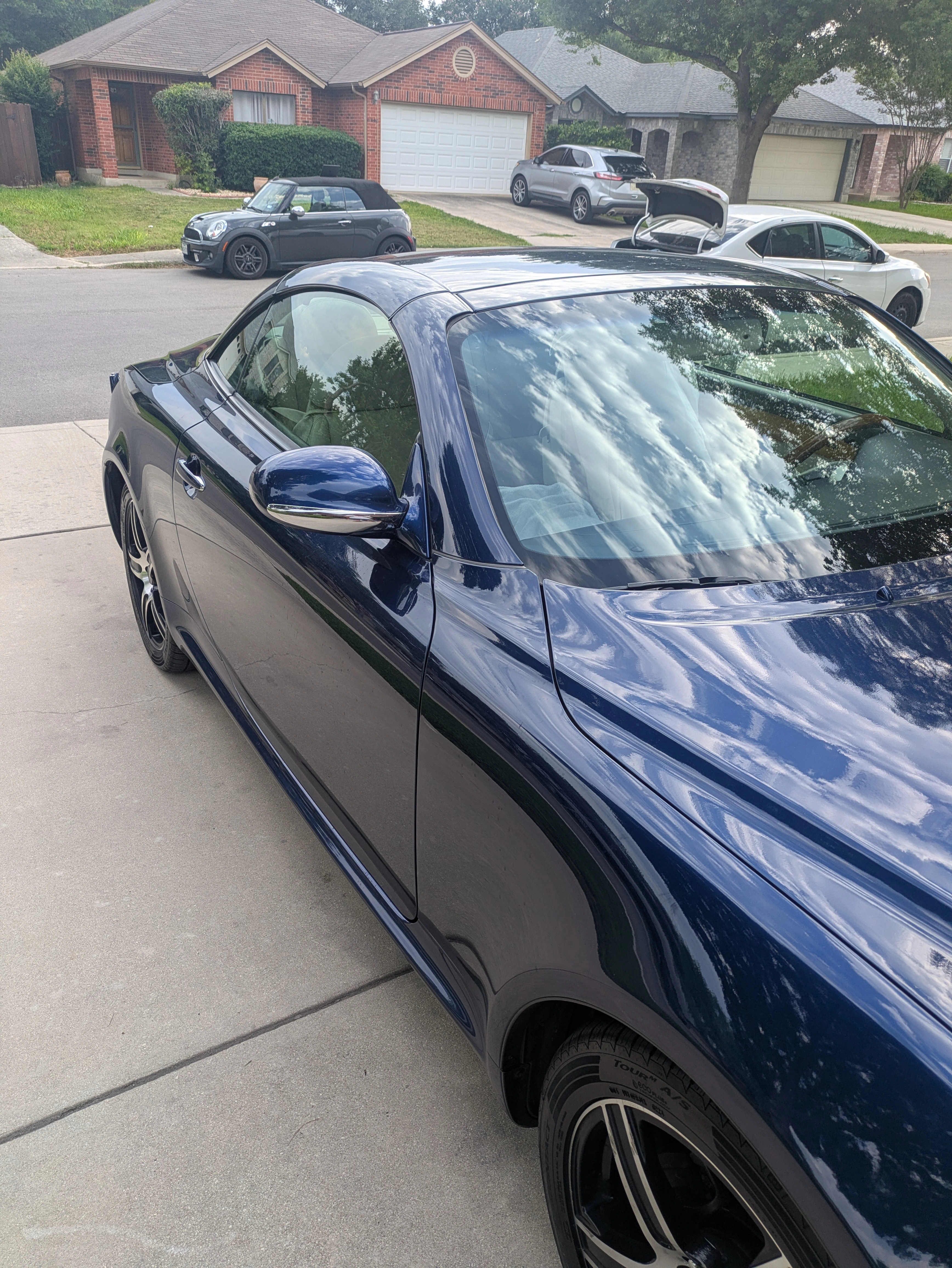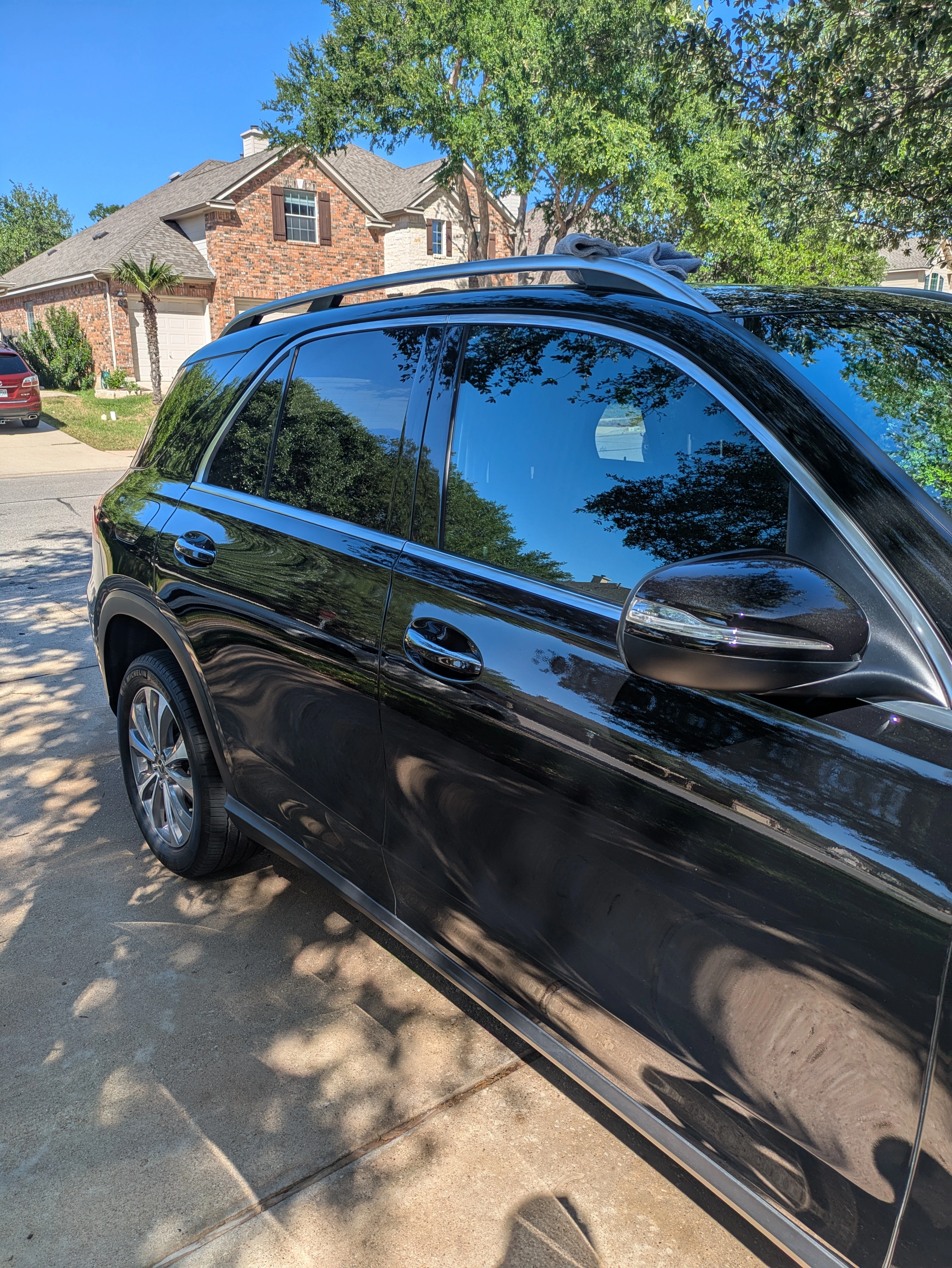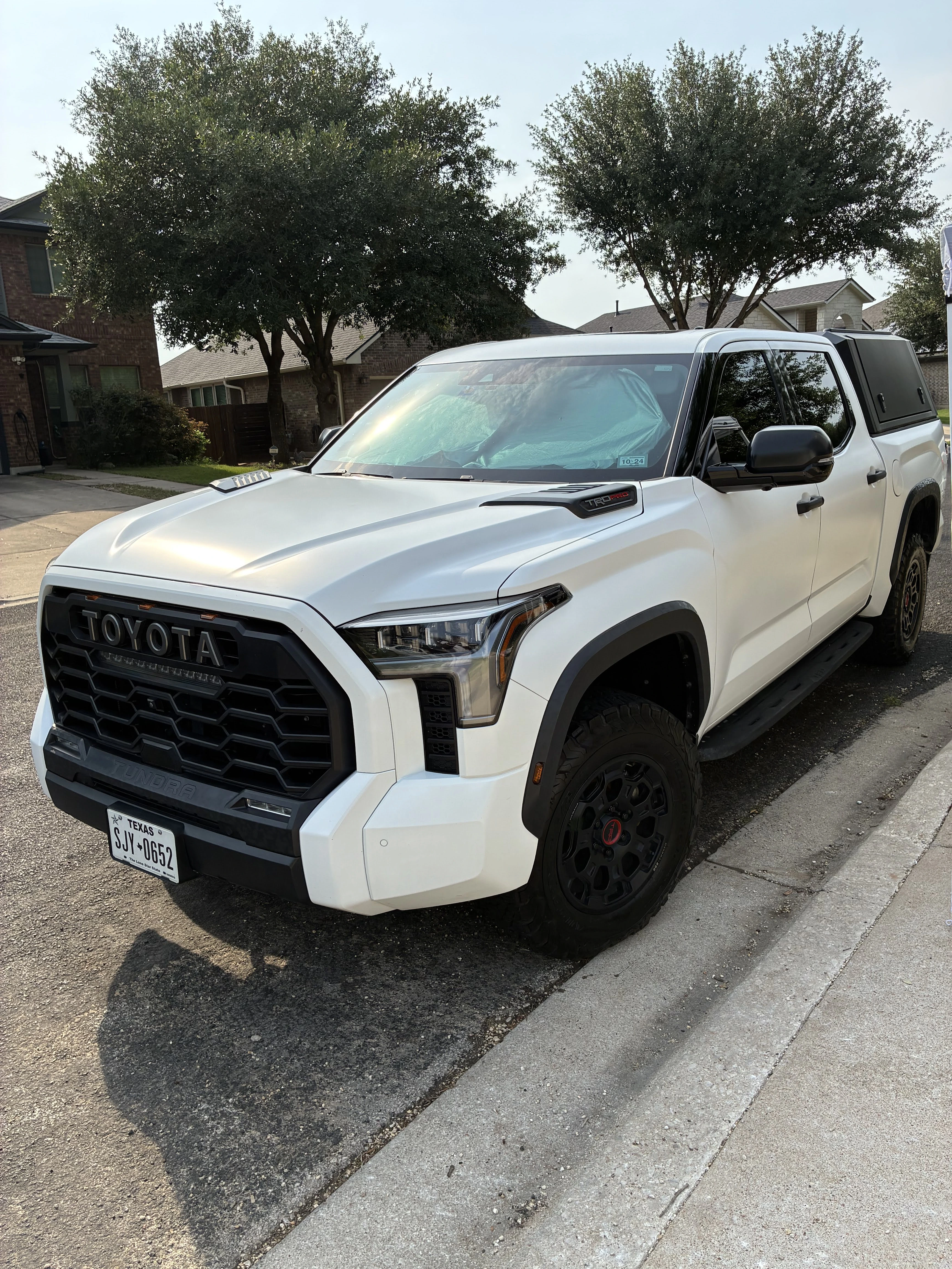Wondering how long ceramic coating lasts on a daily-driven car? Some people say a year. Others claim up to seven. The truth? It depends on more than just the product you use.
Driving conditions, prep quality, and even how often you wash your car all affect how long the coating will hold up. If you're thinking of applying—or reapplying—ceramic coating, you'll want clear facts, not vague marketing.
This guide breaks down everything you need to know about ceramic coating lifespan and how to get the most out of it.
How Long Do Ceramic Coatings Actually Last?
Ceramic coatings usually last 2 to 5 years with proper maintenance. High-end professional coatings may last up to 7 years, while DIY consumer-grade versions often break down within 6 to 12 months.

Factors that affect durability:
- Product type and quality – Coatings with high silica or silicon carbide content last longer.
- Surface preparation – Skipping paint correction reduces adhesion and weakens the coating.
- Environmental exposure – Sun, acid rain, salt, and dust all speed up wear.
- Maintenance habits – Infrequent washing or abrasive cleaners can shorten lifespan.
Research published in Coatings, a peer-reviewed journal, shows that nano-ceramic films degrade more slowly in controlled environments than under real-world exposure.
What Is a 7-Year Ceramic Coating?
Some professional-grade ceramic coatings are marketed as "7-year" products. These typically use high solid content formulas—sometimes silicon carbide (SiC) or hybrid graphene-ceramic blends. They chemically bond to the vehicle's clear coat, forming a durable shield.
But "7 years" refers to optimal lab conditions. In real-world use, you'll likely see strong protection for 3 to 5 years, depending on exposure and upkeep.
Long-lasting coatings often require certified application and must be topped with maintenance boosters to maintain warranty terms.
How Often Should I Replace Ceramic Coating?

Replace ceramic coating every 2–5 years depending on the product, wear, and performance.
You don't need to guess. Look for signs that the coating is wearing out:
- Water no longer beads or sheets off the paint.
- The surface feels rough or has visible dirt retention.
- Paint begins to fade or lose gloss.
While some coatings can last longer, environmental damage—like UV radiation and acid rain—accelerates deterioration. NASA research into UV-induced polymer degradation confirms this.
To extend your coating's life, wash regularly and use a ceramic spray sealant every few months.
Is Ceramic Coating High Maintenance?
Not high maintenance—but it's not maintenance-free, either.
You don't have to wax your car every month, but ceramic-coated vehicles still need care. According to the U.S. Environmental Protection Agency (EPA), pollutants like ozone, acid rain, and airborne particles damage vehicle finishes over time.
Best practices for maintenance:
- Wash every 2–3 weeks with pH-neutral soap.
- Use microfiber mitts and drying towels to prevent scratches.
- Avoid drive-through car washes with brushes.
- Reapply ceramic boosters every 4–6 months.
These steps help preserve hydrophobic properties and surface gloss without the need for full reapplication.
Is There a Permanent Ceramic Coating?

There is no true "permanent" ceramic coating.
Even the toughest professional coatings degrade due to UV exposure, chemical erosion, and mechanical abrasion. According to the National Institutes of Health (NIH) long-term exposure to solar radiation and environmental pollutants causes steady material fatigue.
Manufacturers may advertise coatings as "permanent," but even those require routine maintenance and eventual reapplication.
A better way to think about it: ceramic coatings are semi-permanent surface protectants—longer lasting than wax or sealants, but not invincible.
What Happens When Ceramic Coating Wears Off?
When ceramic coating wears off, you'll notice:
- Water no longer beads and lingers on the surface.
- Paint becomes harder to clean, holding onto dirt, grime, and bird droppings.
- Gloss and color fade, especially with sun exposure.
What's happening here is the breakdown of the nano-structure that repels water and prevents bonding of contaminants. This process is gradual, but noticeable.
Once protection fades, the paint becomes vulnerable again—especially to UV degradation and oxidation. The U.S. National Park Service notes UV light as a major factor in clear coat failure.
If ignored, the vehicle may require paint correction before a new coating can be applied.
Does a Ceramic-Coated Car Need to Be Garaged?
No—but it helps.
Garaging your car reduces exposure to UV rays, acid rain, pollen, and industrial fallout. These factors all accelerate coating breakdown. Even under a coating, constant exposure wears down protection faster.
If outdoor parking is unavoidable:
- Wash more frequently.
- Use a UV-blocking spray topper monthly.
- Consider a car cover during extreme weather.
Vehicles kept outdoors 24/7 may see ceramic performance fade up to 30–40% faster than garage-kept cars in the same climate.
Final Thoughts
Ceramic coating isn't magic—but it's a serious upgrade from traditional wax. When applied correctly and maintained well, it can protect your paint for years, not months. Just remember: how long ceramic coating lasts depends on more than what's written on the label. Real-world results are shaped by everything from road grime to how often you wash your car.
So, what does ceramic coating do? In simple terms, it forms a semi-permanent shield that repels water, resists UV damage, and keeps your car looking cleaner longer. While it won't last forever, it's one of the best tools available for preserving your vehicle's finish—especially when you treat it with the care it deserves.
Not Sure How Long Ceramic Coating Really Lasts?
If you're searching for ceramic coating near me, don't settle for marketing promises. A professional-grade ceramic coating can last up to 5 years—but only with proper prep, application, and care.
Call today or book online to get a ceramic coating in Central Texas that's built for real-world durability. We apply it right and give you the tips to help it last.
